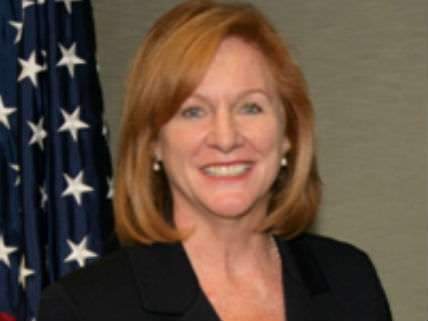U.S. Attorney in Washington Probably Won't Crack Down on Dispensaries but Will Treat Marijuana Regulators Like Teenagers

Last week I wondered whether the failure of medical marijuana legislation in Washington will prompt a federal crackdown on dispensaries now that state-licensed pot shops are on the verge of opening. KUOW, the NPR station in Seattle, put that question to Jenny Durkan, the U.S. attorney for the Western District of Washington, in an interview on Friday. Durkan's response was an interesting mixture of bluster and hedging. She insisted that the dispensaries, which operate as "collective gardens" under creative interpretations of Washington law but are not regulated by the state, are illegal in every respect. "Under Washington state law, dispensaries are not legal," she said. "Every dispensary that is operating is an illegal business." At the same time, she suggested that her office will take action against dispensaries only if "they cross the line into implicating one of the public-interest factors that the Department of Justice has cited."
Durkan was referring to the "enforcement priorities" listed in Deputy Attorney General James Cole's August 29 memo advising federal prosecutors on how to deal with marijuana businesses that comply with state law. Cole suggested that prosecuting such businesses generally would not be a good use of federal resources unless it was aimed at addressing one or more of eight concerns, including violence, trafficking in other drugs, involvement by organized crime, and diversion of marijuana to minors or other states. Durkan seems to be extending that prosecutorial forbearance even to businesses that, in her view, do not comply with state law, provided they do not pose any of the threats mentioned by Cole. Furthermore, she seems to be sticking to those eight priorities, although Cole warned that "nothing herein precludes investigation or prosecution, even in the absence of any one of the factors listed above, in particular circumstances where investigation and prosecution otherwise serves an important federal interest."
Durkan's description of her office's drug-related work offers further reason to think closing down dispensaries won't be a high priority for her:
The vast majority of the cases we bring are cases that involve or implicate Mexican [cartels]. There are huge quantities of cocaine, heroin, methamphetamine, and bulk cash being transported internationally and between states. That's where we're going to focus our resources. We do not have the resources, nor is it our job, to focus on smaller drug cases that can be handled locally.
Still, Durkan, who last year said the continued operation of dispensaries is "not tenable," emphasized that the Justice Department expects Washington to develop and enforce "a strong, robust regulatory system" and that dispensaries "fall outside the state regulatory framework." Although "it's not our job to tell them…what they need to do," she said, Washington cannot deliver proper regulation as long as there is "a huge system of illegal entities in the same business and you don't do anything to curtail that."
Despite the Justice Departnent's desire for strict regulation, the Associated Press reported on Friday, the FBI is refusing to run criminal background checks on people applying for marijuana licenses in Washington, although it has performed that function for marijuana regulators in Colorado. "We are evaluating what the background check policy for the FBI will be," Durkan said. "The systems may be very different in terms of what the FBI is being asked to do." Then she implied that Washington's regulators are acting like spoiled, irresponsible teenagers:
The state is the one that decided it wanted to embark on this course. Having a comprehensive regulatory capability means you have the ability to make sure you are not putting criminals in the business. I liken it to my own own life, that on one hand my teenager may want to have a lot of independence and take the car and in the next breath he's asking me for money for gas. The state has to be able to stand up a very strong, comprehensive regulatory framework to make sure that this works. That's their job; that's their obligation.
If the Justice Department really wants what Cole called "strong and effective regulatory and enforcement systems," this sort of tough love does not make much sense. To use Durkan's condescending analogy, the FBI is taking away the car instead of declining to pay for the gas.


Show Comments (14)